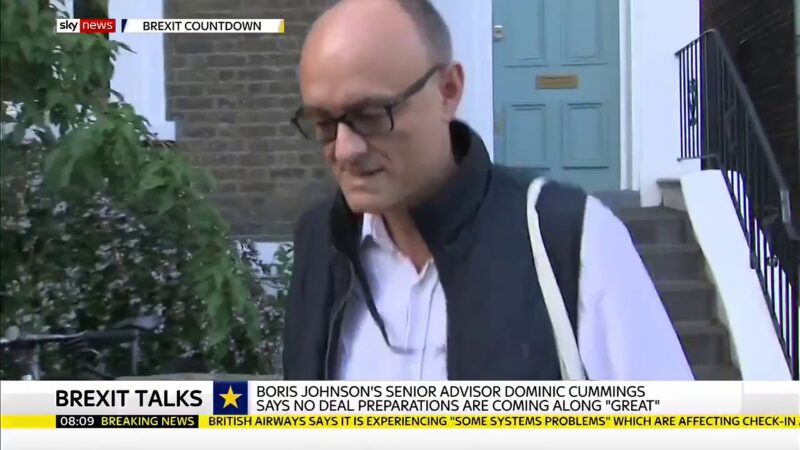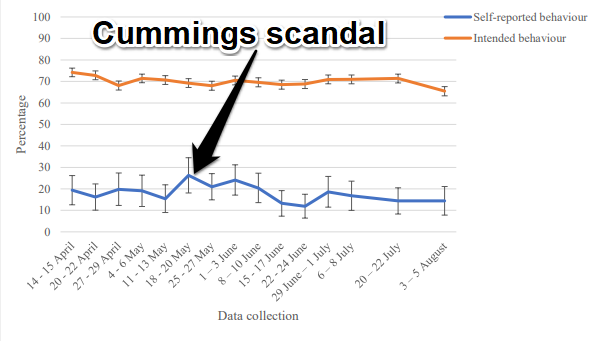Did people stop following the rules because of Cummings?

The number of people with coronavirus symptoms self-isolating went down after the Dominic Cummings scandal broke, new data shows.
Every week, pollsters from BMG Research have been asking people with coronavirus symptoms if they’ve left their home.
The data shows that the percentage of these people saying they were self-isolating peaked between the 18th and 20th of May.
On the 22nd of May, the Mirror and Guardian revealed that Boris Johnson’s chief adviser Dominc Cummings had travelled from London to Durham with coronavirus symptoms.
BMG’s next polling, conducted from the 25th to the 27th of May, shows that the number of people self-isolating was down – from the high 20s to the low 20s.

Although the figure partially rebounded the next week, it has steadily decreased since then.
The study does not prove that the Cummings scandal caused a drop in adherence to self-isolation but it does show that a drop followed the scandal.
The revelations were front-page news for several days and many Tory MPs to demanded that Cummings resigned.
But the Prime Minister defended his adviser, saying: “”In every respect, he has acted responsibly, legally and with integrity,”
Following the scandal, public support for the government fell faster than at any other time since the 1979 ‘Winter of Discontent’.
Joe Lo is a co-editor of Left Foot Forward
To reach hundreds of thousands of new readers we need to grow our donor base substantially.
That's why in 2024, we are seeking to generate 150 additional regular donors to support Left Foot Forward's work.
We still need another 117 people to donate to hit the target. You can help. Donate today.



